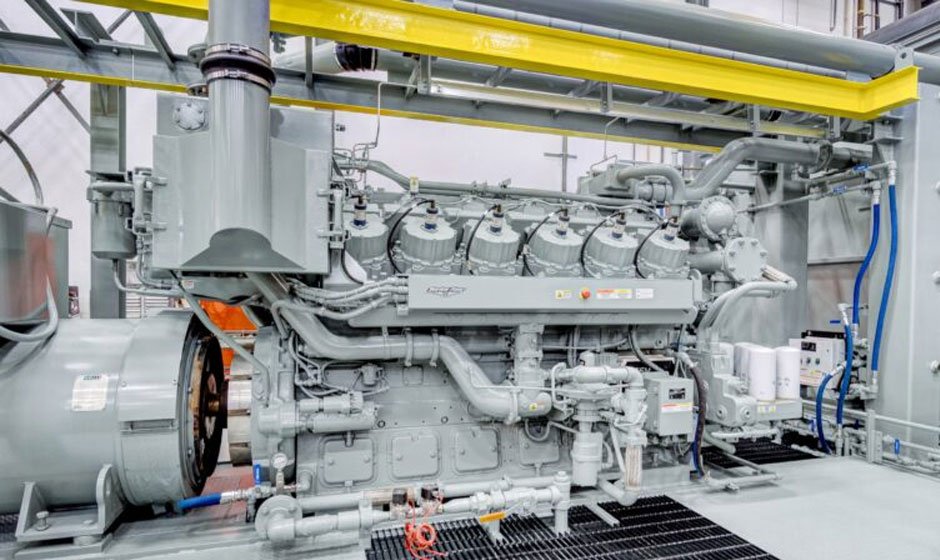Natural gas engine oil helps maintain the performance and longevity of natural gas engines. It lubricates engine parts, aiding and protecting them from corrosion and reducing friction and wear. Natural gas can withstand oil degradation and maintain viscosity, providing efficient engine operation. Here is a closer look at the compatibility of natural gas engine lubricant with different types of natural gas engines:
Spark-ignited Engines – claims
Spark-ignited natural gas engines may use spark plugs to ignite the fuel-air mixture inside the engine. This process helps to generate high temperatures, demanding an oil with heightened thermal stability. Natural gas engine oil provides a high heat stability counter on engine components and contains detergents that inhibit deposit formation to enhance engine performance.
Dual-fuel Engines
Engines classified as dual-fuel can run on two distinct fuels, typically a combination of diesel and natural gas. These engines require specialized oils with low ash and high detergency to prevent deposits on injectors and maintain engine cleanliness. Such oil helps to prevent corrosion effectively and manages soot from diesel combustion, promoting engine longevity.
Lean-burn Engines
The design for lean-burn engines goal was for a higher air-to-fuel ratio. It helps reduce emissions and simultaneously leads to increased operating temperatures. The oil suitable for these engines may need high thermal stability to counteract elevated temperatures. The natural gas oil in these motors provides and resists oxidation to prevent premature oil degradation, thereby maintaining engine efficiency.
High-pressure Direct Injection Engines
Engines that employ high-pressure direct injection introduce fuel directly into the combustion chamber under significant pressure. This approach boosts engine performance and generates a high-pressure environment within the engine. The oil used in these engines contains anti-foaming agents and offers high-quality lubrication to facilitate smooth engine operation.
Choosing the Right Oil for Your Natural Gas Engine Oil
Consider manufacturer recommendations when choosing the right oil for your natural gas engine. Using the wrong oil may reduce engine performance and increase wear and tear. Here are some factors to consider when selecting the right oil for your natural gas engine:
Engine Type
Engine type significantly influences oil selection. Compressed Natural Gas (CNG) engines operate under high pressure, requiring oil robust enough to handle these conditions. Low Emission Vehicle (LEV) and Ultra-Low Emission Vehicle (ULEV) engines adhere to strict emission standards. They need oils that provide efficient lubrication while minimizing contribution to emissions.
Viscosity
Viscosity is the measure of a fluid’s resistance to flow. The right viscosity may guarantee adequate lubrication across all engine parts. High temperatures cause viscosity to lower, reducing its effectiveness. High-viscosity oils are thicker, providing better protection against wear and tear in high-temperature conditions. Low-viscosity oils are thinner, allowing for smoother operations in colder environments.
Oil Composition
The additives such as antioxidants, anti-corrosion agents, and detergents in oil allow for better engine performance. Additives can reduce friction and keep the engine clean while it operates. The right balance of additives can prolong engine life and prevent breakdowns. Additives reduce wear, enhance function, and may extend the engine’s lifespan.
Quality Certifications
High-temperature or dusty conditions may require a specialized oil type for effective performance. Choose an oil type that can withstand extreme temperatures and protect against contaminants. Consider industry certifications such as API (American Petroleum Institute) or ACEA (European Automobile Manufacturers Association). These certifications guarantee that the oil meets minimum standards of quality and performance.
Apply the Right Oil Today
Natural gas engine oil helps maintain the performance and longevity of vehicles powered by natural gas. Knowing the right type of oil to use may help reduce friction, enhance function, and extend the engine’s lifespan. A reputable dealer may assess your vehicle and recommend a suitable oil compatible with the engine. If you are looking for an effective and high-quality oil for your natural gas engine, consider the oil’s viscosity, composition, and quality certifications.

